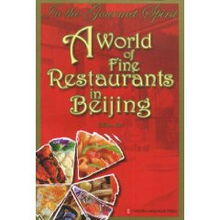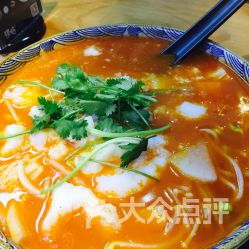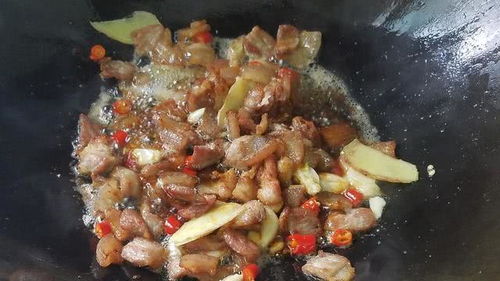Exploring the World of Gastronomy: English for Foodies
Introduction
Learning English for food enthusiasts opens doors to a world of culinary delights and international gastronomic experiences. Whether you’re an aspiring chef, a food blogger, or simply a lover of global cuisine, mastering the language of food will greatly enhance your understanding and appreciation of different culinary traditions. In this guide, we’ll explore the essential English vocabulary, phrases, and expressions for discussing food, cooking techniques, dining experiences, and much more. Let’s embark on a journey through the savory and sweet realms of the English language for food aficionados!
Essential Vocabulary for Foodies
Ingredients
1.
Flour
: The finely milled powder made from grains such as wheat, corn, or rice, used as a primary ingredient in baking and cooking.2.
Saffron
: A valuable spice derived from the crocus flower, known for its vibrant color and distinct flavor.3.
Garam Masala
: A fragrant blend of ground spices commonly used in Indian cuisine, including cardamom, cinnamon, and cloves.4.
Truffle
: A highly prized and flavorful type of edible fungi, often used in gourmet dishes and sauces.5.
Tofu
: A proteinrich food made from condensed soy milk, commonly used in vegetarian and vegan cooking.Cooking Techniques
1.
Sauté
: A cooking method that involves quickly frying food in a small amount of oil or butter over high heat.2.
Braise
: To cook food slowly in a closed container with a small amount of liquid, often resulting in tender and flavorful dishes.3.
Poach
: To gently cook food in simmering liquid, such as water or broth, until it is tender.4.
Grill
: A method of cooking food over an open flame or hot surface, often imparting a smoky flavor.5.
Sear
: To brown the surface of meat quickly at a high temperature, sealing in the juices and enhancing the flavor.Taste and Texture
1.
Umami
: A savory taste sensation often associated with foods such as mushrooms, soy sauce, and aged cheeses.2.
Tender
: Used to describe food that is soft, easy to chew, and not tough or stringy.3.
Crunchy
: Having a crisp and firm texture, often associated with fresh vegetables and certain types of snacks.4.
Zesty
: Characterized by a strong, tangy, and invigorating flavor, often associated with citrus fruits and spicy dishes.5.
Decadent
: Indulgent and luxurious, often used to describe rich and extravagant desserts and treats.Dining Experiences

1.
Fine Dining
: The highest level of restaurant experience, often characterized by elegant ambiance, attentive service, and meticulously prepared dishes.2.
Street Food
: Readytoeat food and drinks sold by vendors in public places, reflecting local culinary traditions and flavors.3.
Cuisine
: A style or method of cooking, especially as characteristic of a particular country, region, or establishment.4.
FarmtoTable
: A culinary movement that emphasizes using locally sourced ingredients, often directly from the producer to the consumer.5.
Tasting Menu
: A carefully curated selection of small, often inventive dishes presented in succession, allowing diners to experience a variety of flavors and textures.Conversational Phrases for Food Enthusiasts
Ordering Food
1. "I’d like to start with the soup of the day, please."
2. "Could you recommend a signature dish from the menu?"
3. "Is it possible to customize my order to make it glutenfree?"
4. "I’ll have the chef's special, mediumrare, please."
5. "May I see the dessert menu, please?"
Describing Flavors
1. "This dish has a perfect balance of sweet and savory flavors."
2. "The fragrance of the spices in this curry is absolutely mesmerizing."
3. "The chocolate cake is incredibly rich and decadent."
4. "I enjoy the subtle hint of citrus in this refreshing sorbet."
5. "The wine offers a delightful blend of fruit and oak flavors."
Sharing Culinary Experiences
1. "I recently tried an authentic Neapolitan pizza for the first time, and it was a revelation!"
2. "Exploring the local food markets is one of my favorite ways to immerse myself in a new culture."
3. "Attending a cooking class in Tuscany allowed me to hone my pastamaking skills."
4. "I believe that experiencing a traditional Japanese tea ceremony is an essential part of understanding Japanese cuisine."
5. "Sampling street food in Bangkok was a culinary adventure I’ll never forget."
Conclusion
Mastering the vocabulary, phrases, and expressions related to food and culinary experiences in English can greatly enrich your gastronomic journey. Whether you’re savoring international cuisines, discussing cooking techniques, or sharing culinary adventures with fellow food enthusiasts, a solid grasp of foodrelated English will enhance your enjoyment and appreciation of diverse culinary traditions. So, savor the flavors, relish the textures, and let the language of food elevate your epicurean escapades!











